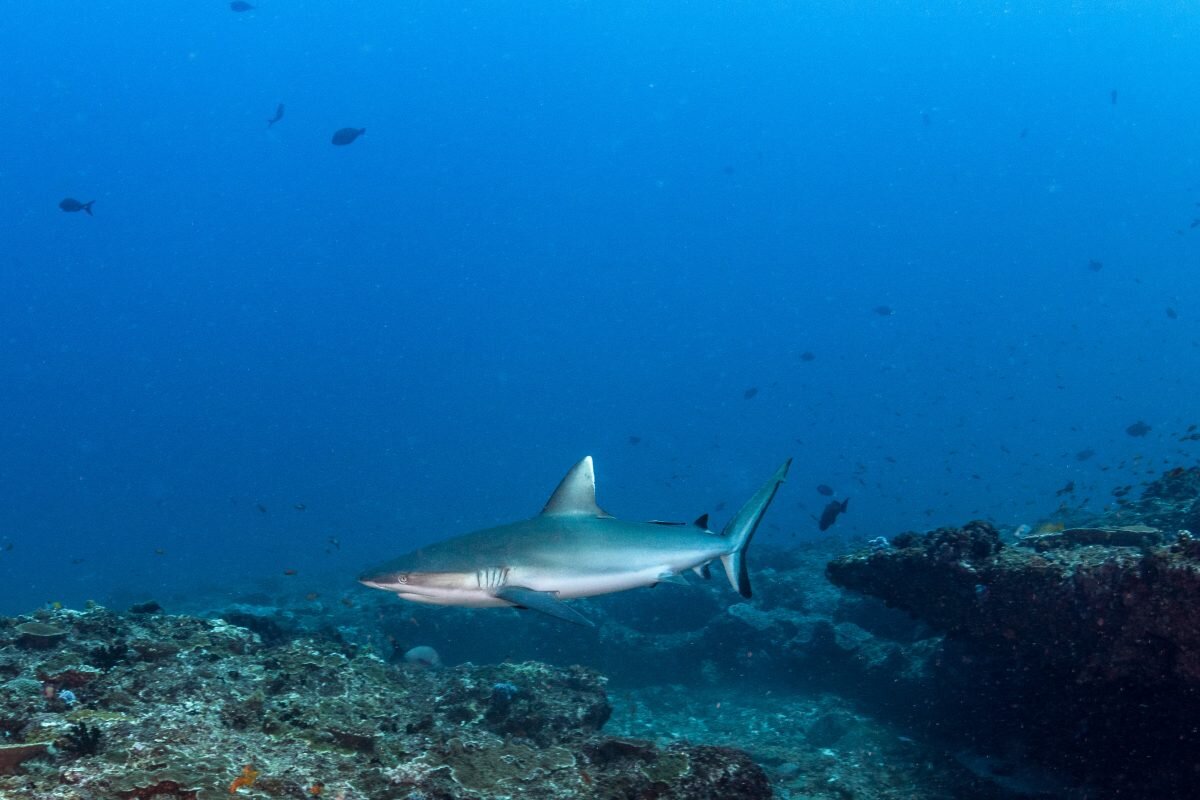First-of-its-kind global survey reveals sharks could be better protected in Mozambique
A new landmark study published today in Nature by Global FinPrint reveals sharks are virtually absent on many of the world’s coral reefs, indicating they are too rare to fulfill their normal role in the ecosystem, otherwise referred to as “functionally extinct.” Of the 371 reefs surveyed in 58 countries, sharks were not observed on nearly 20 percent, indicating a widespread decline that has gone undocumented on this scale until now.
Grey reef shark, Northern Great Barrier Reef, Australia | Image credit: Global FinPrint
Essentially no sharks were detected on any of the reefs of six nations: the Dominican Republic, the French West Indies, Kenya, Vietnam, the Windward Dutch Antilles and Qatar. Among these, a total of only three sharks were observed on more than 800 survey hours.
The Marine Megafauna Foundation supported the Mozambique fieldwork, where they have been leaders in marine research and conservation for over a decade.
“It was disheartening to see Mozambique place in a middle-tier for global reef shark presence,” said Anna Flam, a scientist with the Marine Megafauna Foundation who participated in the study. “However, seeing the significant gains possible for shark conservation with simple management practices, I cannot wait to redouble our conservation efforts with local communities. This study validates our local approach, and provides increased evidence for changes we have long pursued, such as reef closure areas and gill net bans.”
Mozambique whitetip reef shark | Image credit: Anna Flam
This first-ever benchmark for the status of reef sharks around the world, funded by the Paul G. Allen Family Foundation, reveals an alarming global loss of these iconic species that are important food resources, tourism attractions, and top predators on coral reefs. Their loss is due in large part to overfishing of sharks and their prey, with the single largest contributor being destructive fishing practices, such as the use of longlines and gillnets.
“Although our study shows substantial negative human impacts on reef shark populations, it’s clear the central problem exists in the intersection between high human population densities, destructive fishing practices, and poor governance,” said Dr. Demian Chapman, Global FinPrint co-lead and Associate Professor in the Department of Biological Sciences and Institute of Environment at Florida International University. “We found that robust shark populations can exist alongside people when those people have the will, the means, and a plan to take conservation action.”
The study revealed several countries where shark conservation is working and the specific actions that can work. The best performing nations compared to the average of their region included Australia, the Bahamas, the Federated States of Micronesia, French Polynesia, the Maldives, and the United States. These nations reflect key attributes that were found to be associated with higher populations of sharks: being generally well-governed, and either banning all shark fishing or having strong, science-based management limiting how many sharks can be caught.
“These nations are seeing more sharks in their waters because they have demonstrated good governance on this issue,” said Dr. Aaron MacNeil, lead author of the Global FinPrint study and Associate Professor at Dalhousie University. “From restricting certain gear types and setting catch limits, to national-scale bans on catches and trade, we now have a clear picture of what can be done to limit catches of reef sharks throughout the tropics.”
Dr. Andrea Marshall, principal scientist and co-founder of the Marine Megafauna Foundation, maintains there is hope for sharks in eastern Africa: “While many of the local shark and ray populations have been decimated in southern Mozambique over the last two decades, healthy populations remain in some protected areas like the Bazaruto Archipelago National Park. It gives us hope that a network of well managed MPAs along this coastline could safeguard the remaining populations of these important predators.”
Mozambique grey reef shark silhouette | Image credit: Anna Flam
The FinPrint team is wrestling with the fact that conservation action on sharks alone can only go so far. Researchers are now looking at whether recovery of shark populations requires management of the wider ecosystem to ensure there are enough reef fish to feed these predators.
“Now that the survey is complete, we are also investigating how the loss of sharks can destabilize reef ecosystems,” said Dr. Mike Heithaus, Global FinPrint co-lead and Dean of the College of Arts, Sciences & Education at Florida International University. “At a time when corals are struggling to survive in a changing climate, losing reef sharks could have dire long-term consequences for entire reef systems.”
Launched in the summer of 2015 Global FinPrint’s data were generated from baited remote underwater video stations (BRUVS) that consist of a video camera placed in front of a standard amount of bait – a “Chum Cam.” Coral reef ecosystems were surveyed with BRUVS in four key geographic regions: The Indo-Pacific, Pacific, the Western Atlantic and the Western Indian Ocean.
Mozambique grey reef shark | Image credit: Anna Flam
Over the course of four years, the team captured and analyzed more than 15,000 hours of video from surveys of 371 reefs in 58 countries, states and territories around the world. The work was conducted by hundreds of scientists, researchers, and conservationists organized by a network of collaborators from Florida International University, the Australian Institute of Marine Science, Curtin University, Dalhousie University, and James Cook University.
For more information and a new global interactive data-visualized map of the Global FinPrint survey results, visit https://globalfinprint.org.
About Global FinPrint
Global FinPrint is an initiative of the Paul G. Allen Family Foundation and led by Florida International University, supported by a global coalition of partner organizations spanning researchers, funders and conservation groups. The project represents the single largest and most comprehensive data-collection and analysis program of the world’s populations of reef-associated sharks and rays ever compiled.
About the Marine Megafauna Foundation
The Marine Megafauna Foundation was created in 2009 to research, protect and conserve the populations of threatened marine megafauna around the world. ‘Megafauna’ are large marine species such as sharks, rays, and sea turtles. For further details, please see www.marinemegafauna.org or follow us on Twitter, Facebook, Instagram and LinkedIn.
About the Paul G. Allen Family Foundation
For more than four decades the Paul G. Allen Family Foundation has focused on changing the trajectory of some of the world’s toughest problems. Founded by philanthropists Jody Allen and the late Paul G. Allen, co-founder of Microsoft, the foundation initially invested in community needs across the Pacific Northwest with a focus on regional arts, under-served populations, and the environment. Today, the foundation supports a global portfolio of frontline partners working to preserve ocean health, protect wildlife, combat climate change, and strengthen communities. The foundation invests in grantees to leverage technology, fill data and science gaps, and drive positive public policy to advance knowledge and enable lasting change.
About Florida International University
Florida International University is Miami’s public research university and in less than five decades has become a top 100 public university, according to U.S. News & World Report’s Best Colleges. FIU is focused on student success and research excellence, with nearly $200 million in annual research expenditures. The Next Horizon fundraising campaign is furthering FIU’s commitment to providing students Worlds Ahead opportunities. Today FIU has two campuses and multiple centers, including sites in Qingdao and Tianjin, China, and supports artistic and cultural engagement through its three museums: Patricia & Phillip Frost Art Museum, the Wolfsonian-FIU, and the Jewish Museum of Florida-FIU. FIU is a member of Conference USA, with more than 400 student-athletes participating in 18 sports. The university has awarded more than 330,000 degrees to many leaders in South Florida and beyond. For more information about FIU, visit www.fiu.edu.
– ENDS –
Notes to Editors
The full study is available online at www.nature.com
For questions about this research, please contact:
Anna Flam, Scientist, Marine Megafauna Foundation
Email: anna@marinemegafauna.org
High-resolution images, videos, infographics and other press materials are available here (accessible via Dropbox). There is a list of credits for the images within the images folder.









